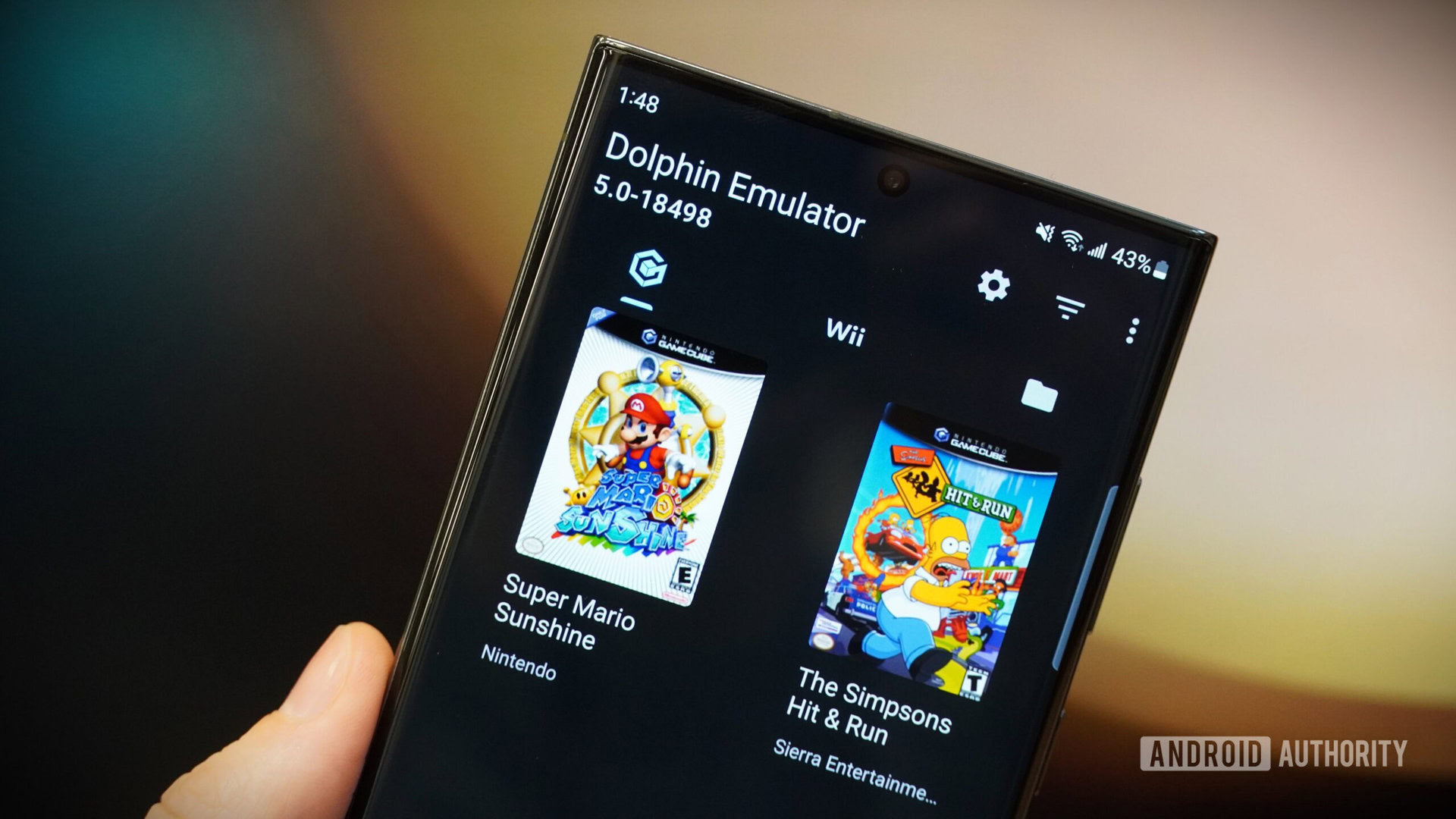
Adam Birney / Android Authority
TL; DR
- Apple has changed the guidelines for apps in the App Store, allowing console emulators for the first time.
- Although this is due to pressure from the EU due to anti-competition concerns, the policy change is global.
- Android has had console emulation since the beginning.
There are many things that differentiate an iPhone from an Android phone. One of the more prominent differences are their app stores: Apple’s App Store is tighter than a drum, while Google’s Play Store is much more open. Thanks to the latter’s open doors, Android users have enjoyed console emulation since the very beginnings of the platform. Some of the first Android apps were actually Nintendo emulators.
However, today Apple changed its App Store rules and will allow emulators in the store (h/t 9to5Mac). This means that for the first time ever, iPhone users can visit the App Store and download the emulator without any hassle. Previously, they had to jailbreak an iPhone and then install emulators on the side or rely on shady apps that bypass Apple’s verification process and hide the emulator inside.
Why does this change occur? This is undoubtedly a response to ongoing scrutiny by EU regulators of Apple’s business practices, which EU commissioners believe are anti-competitive. Thanks to new laws passed in Europe, Apple had to make a bunch of changes, including switching the iPhone to the USB-C standard. Allowing third-party app stores and the ability to download apps from other sources is another thing that Apple had to change, and this change to its rules is, no doubt, a direct response to that.
In other words, Apple knows that people will flock to third-party platforms to get emulators, which is bad for Apple. It is a pure representation of competition that is good for the consumer.
To be clear, just because this is a response to EU resistance, it is a global change. Even in the US, iPhone users will eventually have access to emulators.
Of course, emulators touch some legal gray areas. Although the courts in several countries have argued that system emulation is perfectly legal, using proprietary software in those emulators you download for free from the Internet – games, in the case of console emulation – is not legal. Apple (and developers) will now have to contend with it.
However, Google has had to deal with this problem since 2008, so it’s obviously not impossible.
Since this change just happened, it will probably take some time until the first emulators appear on the App Store. Our money is on the big emulators like RetroArch or Dolphin leading the way, but it’s possible that some smaller emulators could go first. Either way, emulators are coming to the iPhone, and that’s good news for retro gamers.